The Scapa distillery was founded in 1885 by John Townsend and MacFarlane, distillers from Glasgow, and is settled on the banks of the famous “Scapa Flow”. The distillery had a century of production involving few changes of ownership. During World War I, the distillery barely avoided a fire thanks to the intervention of sailors of the Royal Navy. The distillery was used as an ammunition depot for the British army. It was silent for two years from 1934 and was owned for a time by the Bloch brothers, the owners of Glen Scotia distillery in Campbeltown. In 1954 Hiram Walker bought the distillery and he added amongst other things a Lomond still. Scapa was rebuilt in 1959 with further internal improvements made in 1978.
The water supply carries a considerable amount of peat from the Lingro Burn and local springs, as a result of which the barley it uses is left unpeated. The waterwheel that supplied power to the original distillery is still there but the maltings were taken out of use in the 1960s not long after the rebuilding of the distillery.
The distillery has a single pair of stills, one of them is of the Lomond type, a rare feature. It has a short, stubby top instead of the elongated goose-neck heads customary in Scottish distilleries. An appealing aspect for hard-line traditionalists is that the whisky is made without the usual hi-tech automation. The distillate intended for bottling as a single malt is aged exclusively in ex-Bourbon casks – which is oakwood charred on the inside of the staves. Over the years, most of the distillery output has gone into the Ballentine’s blend.
The distillery was mothballed in 1994. A year ago, in the spring of 2004, owners Allied Distillers committed to reopening the distillery investing £4 million in Scapa and Glendronach distilleries using traditional building skills and techniques in order to retain the unique style of malt produced. Scapa has been fully operational (purportedly) since January 2005 with intermittent production. Further work being phased over a two-year period. Scapa is currently managed by its Orkney neighbor, Highland Park the northern most distillery in Scotland.
The 2 Scapa stills (with the Lommond on the Left)
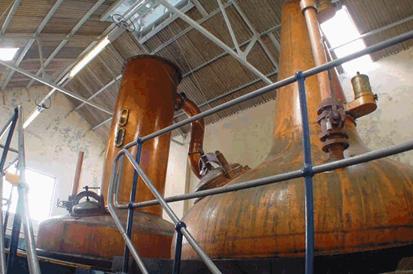
Views of the beautiful Scapa terroir:
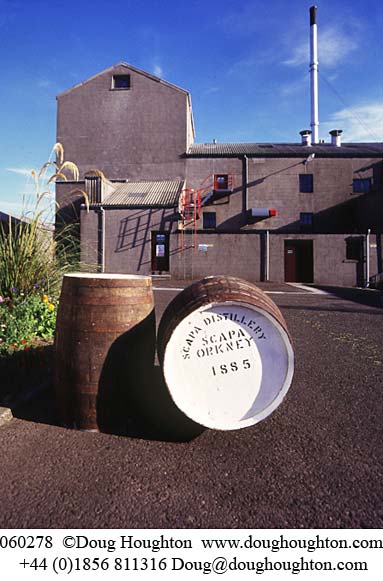
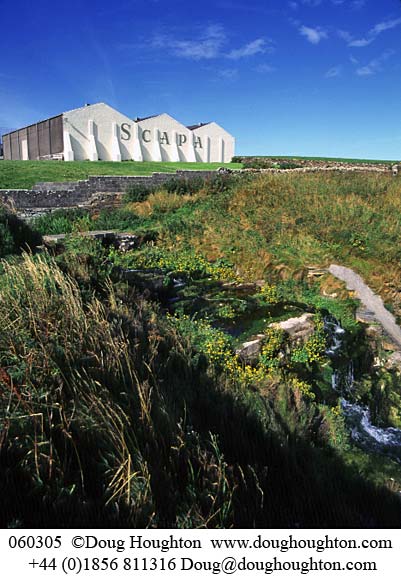
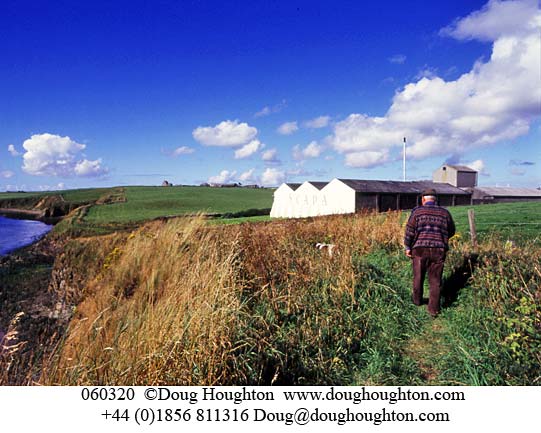
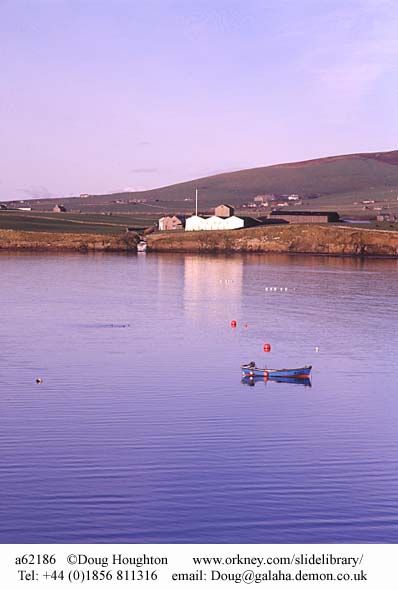
Comments